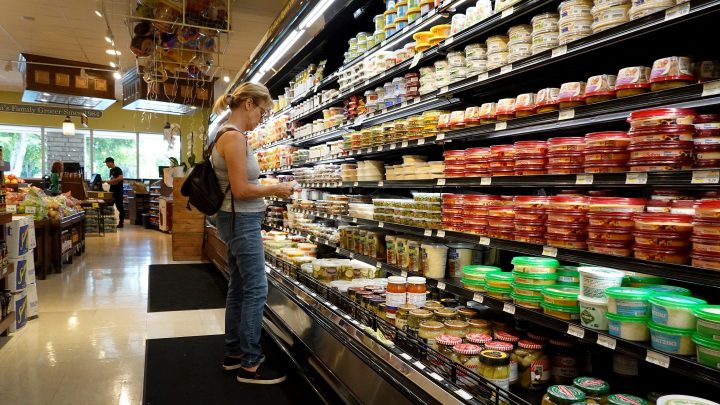
White House moves to stop alleged price gouging

On Wednesday, the Joe Biden administration announced the latest stage of its multiyear effort to crack down on what it calls too much concentration and anti-competitive behavior in multiple parts of this economy.
From the Federal Trade Commission and the Department of Justice, we got new guidelines on mergers and acquisitions. From the Department of Housing and Urban Development, new research and private-sector changes to so-called junk fees in the rental market.
And from the Department of Agriculture, an announcement about a plan to work with state attorneys general to address accusations of “price gouging and other anti-consumer practices” in the food and agriculture markets.
That last one, of course, being quite a point of contention over the last year or so as food prices shot up and many critics, including the White House, accused food companies of taking consumers for a ride.
That fight over who is responsible for food inflation, and what the government should do about it, is still going strong. The administration’s argument echoes the complaints of advocates for consumers and for some farmers.
“The dominant firms in any of the food and agriculture sectors, the control that they have over the market, has provided them the ability to literally set the price as high as they want or gouge in pricing that has led to the inflation,” said Joe Maxwell, president of the advocacy group Farm Action Fund.
Just a few firms control much of the supply chain between farms and our tables. Record profits were made even as consumers struggled with higher food prices.
The administration said it will work with states to “ramp up enforcement of antitrust and consumer protection laws,” targeting alleged price fixing in meat processing, grocery stores and other parts of the vast food industry.
“They see it as their role to put pressure on corporate manufacturers and processors to try to not only lower inflation, which is good for everybody,” said Amy Bentley, a professor of food studies at New York University. “But also help consumers’ bottom line by urging or providing carrots or sticks to corporations to get them to lower their prices.”
But those corporations argue market forces will keep prices in check because, you know, that’s how capitalism works.
“Supply and demand still rules the day,” said Curtis Dubay, chief economist at the U.S. Chamber of Commerce.
He said it’s pretty clear that many of these rules, regulations and initiatives coming down the pike are going to end up in court.
“The Biden administration is making it clear that they are going to be more active and intervening and that the business community or those businesses that are impacted are going to argue for their claim from their side,” Dubay said.
Which means this food fight is just getting started.
There’s a lot happening in the world. Through it all, Marketplace is here for you.
You rely on Marketplace to break down the world’s events and tell you how it affects you in a fact-based, approachable way. We rely on your financial support to keep making that possible.
Your donation today powers the independent journalism that you rely on. For just $5/month, you can help sustain Marketplace so we can keep reporting on the things that matter to you.

















